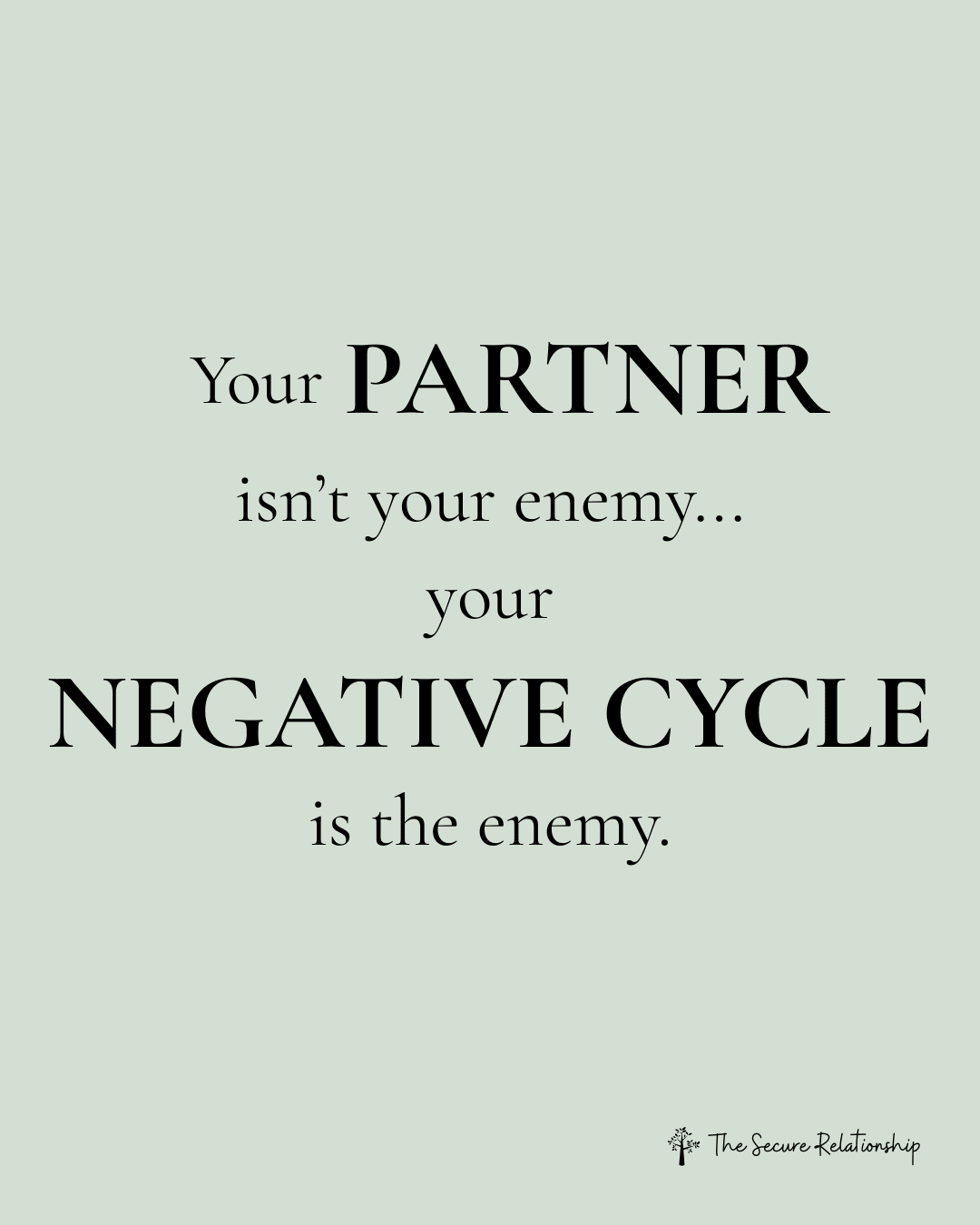Tips for Healing an Insecure Attachment
Improve Communication Skills
Learn to speak from a place of self:
"I was hurt by what you said. In those moments, I don't know that you care about my feelings" instead of "You don't care about my feelings."Avoid blame, criticism, angry protest, defensiveness, stonewalling, counter-attacks, and deflection.
Make sure both partners are heard: take turns listening, reflecting, and validating before problem-solving.
Have tough discussions from a place of emotional regulation.
Use the DEAR MAN method.
Get out of negative cycles.
Step Into Your Partner's Inner World
Be curious about what might be going on inside them when they're triggered—consider the meaning they make of words or events, the emotions they might be feeling, their fears, and their desires.
Practice understanding their perspectives and making sense of their experiences.
Build empathy by questioning automatic negative assumptions about their intentions.
Your experience is always real, but that doesn’t mean the meaning you’re making of the experience is accurate.Example: Your partner looks at you with what you perceive as an angry expression. You feel hurt and anxious, but that doesn’t mean your partner is actually angry—it could be concentration or something unrelated to you.
Learn to discern between past and present triggers and be curious with your partner.
Emotional Regulation
Use breathing exercises to calm the nervous system.
Learn to meditate and allow emotions to flow through your body.
Journal to process thoughts and feelings.
Engage in physical activity to regulate emotions.
Seek support from a trusted friend or loved one.
Practice regular self-care—maintain a healthy diet, exercise routine, and sleep schedule.
Eat something if you’re hungry; rest if you’re tired.
Make Peace With Closeness
Explore past experiences that have affected your comfort with closeness and intimacy.
Learn to set healthy interpersonal boundaries.
Work through fears around reaching for emotional connection.
Identify what makes it difficult to respond to your partner’s bids for connection.
Build confidence by learning emotional support skills so you know how to respond when your partner reaches for you.
Work on how you express your own bids for connection.
Develop a Healthy Sense of Self
Work on dissolving shame.
Shift away from seeing yourself as superior or inferior to others—embrace a growth mindset.
Recognize that you are a combination of strengths and weaknesses, rather than categorizing yourself as “good” or “bad.”
Gain control over your inner experiences—don’t let others define your thoughts or feelings.
Learn to self-reflect to identify what you truly think and feel.
Be discerning about what you can and cannot control.
Learn to say “no” and “yes” in alignment with your own needs.
Practice balancing empathy for others while staying grounded in yourself—learn to feel what others feel without being overtaken by their emotions.
Get To Know Your Inner World
Learn to access, name, and express your emotions.
When triggered, be curious about the meaning you’re making of the event, not just the event itself.
Validate your feelings and perceptions, but also question them.
All feelings and perceptions are real and valid, but not all the thoughts that create them are accurate. Use discernment.Define your value system and moral compass and use it to guide your decisions. Reassess over time—nothing has to be set in stone.
Define your life priorities and use them to make decisions. Revisit them periodically.
Recommended Resources
Books:
Secure Love by Julie Menanno
Hold Me Tight by Dr. Sue Johnson
The DBT Skills Workbook by McKay, Wood, & Brantley
The Body Keeps the Score by Bessel van der Kolk
Nonviolent Communication by Marshall Rosenberg
Podcast:
The Secure Love Podcast – Real-time couples coaching using Emotionally Focused Therapy.
Courses & Workshops:
Understanding Shame Workshop – A deep dive into breaking free from shame patterns.
Attachment 101 Course – Understand attachment theory and relationship dynamics.
Group Support:
Julie's Group – Bi-weekly group coaching with Q&A and discussions.
Men's Group – Emotional availability and self-awareness for men.
“The most successful relationships are built on emotional support, both from each other and from within.”



Trying to control your environment—like keeping a spotless house—can sometimes be a way to manage inner anxiety caused by relationship disconnection. But when that strategy backfires, it can create more of the very disconnection you’re trying to avoid. This post explores how personal anxiety shows up in relationships, and how couples can break the cycle.